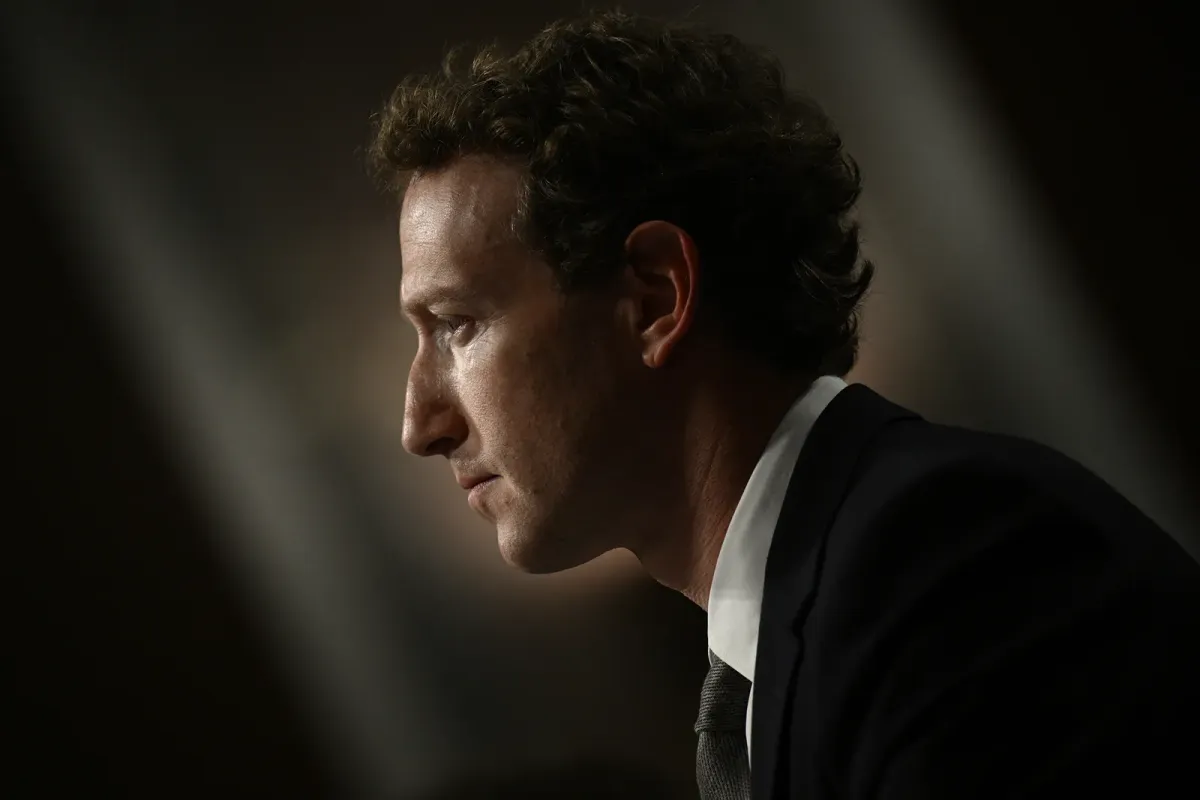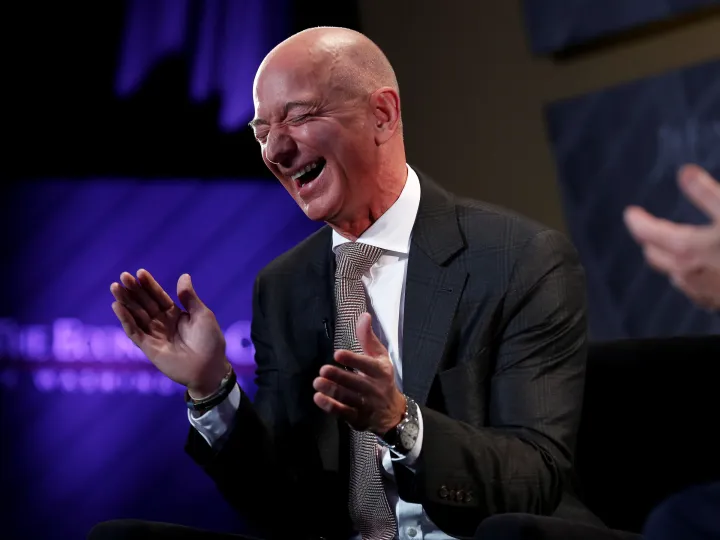Everyone's Googling How to Delete Facebook. Here's What That Actually Means
Meta's embrace of MAGA isn't mere capitulation – it's a calculated gamble that network effects and user habit will outweigh the exodus of outraged advertisers and users.

Meta CEO Mark Zuckerberg haphazardly announced this week that the company would terminate its third-party fact-checking program, relocate content moderation to Texas, and loosen various content restrictions. The move, widely seen as courting favor with the incoming Trump administration, has prompted record-breaking Google searches for "how to delete Facebook" and sparked a backlash termed by the amateur cage fighter himself as "virtue signalling." Has Meta made a rational strategic choice, or has Zuckerberg miscalculated the long-term equilibrium of platform governance?
Meta faces a credible threat from the incoming administration – Trump has already labeled Facebook an "enemy of the people," and his previous term demonstrated both willingness and capability to target specific companies through executive action. The TikTok situation provides a ready template for how platform companies can become political targets. Meta's market cap of $1.5 trillion represents an enormous amount of shareholder value potentially at risk.
Meta's elevation of Trump ally Dana White to its board and the promotion of Republican operative Joel Kaplan to head of global affairs suggests the company is attempting to transform potential regulatory threats into opportunities. The theory appears to be that by aligning with the new power structure, Meta can not only avoid becoming a target but potentially benefit from favorable treatment while competitors face increased scrutiny.
But Meta isn't just playing defense, they're attempting to exploit a "coordination game" between platforms. If multiple platforms maintain strict content moderation, the political cost of targeting any single platform increases. But if some platforms (like X) abandon moderation while others maintain it, the remaining "strict" platforms become much easier targets. Meta may be calculating that with X already having shifted to a permissive moderation stance, maintaining stricter standards would leave them isolated and vulnerable.
The capitulation creates several other interrelated games that Meta must navigate simultaneously. The most immediate is the two-sided market problem between users and advertisers. The X/Twitter case study looms large here – after Musk's takeover and subsequent moderation changes, the platform reportedly lost 50% of advertising revenue and saw its estimated value drop by 80%. Meta, as a public company, simply cannot sustain that kind of revenue impact.
But Meta's scale and market position are fundamentally different from X's. Facebook and Instagram have much stronger network effects and much deeper integration into both user habits and advertiser workflows. The cost of leaving these platforms is significantly higher than leaving Twitter/X. People might express outrage and search Google for "how to delete Facebook," but actually following through requires breaking numerous social and professional connections.
More importantly, Meta has learned from X's stumbles. Rather than Musk's sudden and dramatic changes, Meta is implementing a more gradual shift with several clever mechanical differences. The replacement of fact-checkers with "community notes" maintains a facade of moderation while fundamentally changing its nature. The geographic relocation of content moderation provides political cover for policy changes. These moves give advertisers plausible deniability while effectively achieving similar ends to X's more dramatic policy shifts.
The past several years have seen platforms caught between competing demands – pressure for increased content moderation from advertisers and urban professional users on one side, and accusations of censorship from political actors and free speech advocates on the other. Meta appears to be betting that this tension is unsustainable, and that the winning strategy is to align with political power while maintaining just enough moderation theater to retain advertisers.
Let's say this strategy costs Meta even 5% of its current advertisers and users (a high estimate based on historical platform behavior patterns). If it prevents regulatory action that could threaten the entire business model, and positions Meta favorably for government contracts and regulatory approval of future initiatives, the expected value could still be positive. This is especially true if you believe, as many do, that the current advertising-based social media model is approaching its limits anyway.
Meta's bet appears to rest on several key assumptions: that advertiser and user exodus will be limited and temporary; that the political alignment will provide durable advantages; that no new platform will successfully capture the "high quality" market segment; and that the fundamental social media business model isn't about to be disrupted anyway
Each of these assumptions deserves scrutiny. The advertiser question is particularly thorny – while individual advertisers might be willing to stay on a platform with looser moderation, their insurance companies and institutional shareholders might take a different view. The recent rise of "brand safety" as a key metric in advertising suggests deeper structural forces pushing against content free-for-alls.
The political alignment assumption might be even shakier. Yes, courting favor with the incoming administration could provide short-term benefits. But it also creates vulnerability to political winds changing again. More fundamentally, it risks making Meta's platforms explicitly partisan in a way that could accelerate platform bifurcation along political lines – potentially weakening the network effects that give the platforms their value in the first place.
Meta’s strategy has opened the door for platforms like Bluesky to present themselves as the “high-quality” alternative. Bluesky has seen a surge in signups, but past efforts to build such platforms have typically failed to overcome the grip of network effects. Threads’ rapid user growth, paired with its adoption of Twitter’s original moderation model, shows Meta’s keen understanding of this dynamic. By controlling both mainstream and “premium” platforms, Meta can fine-tune content policies to appeal to different user groups, effectively blocking the rise of any genuine competitors.
Finally, there's the question of timing. Social media appears to be approaching an inflection point, with AI-generated content, declining organic reach, and evolving user preferences all threatening the current paradigm. Meta's pivot might be less about winning the current game and more about positioning for whatever comes next. By aligning with political power now, they may be hoping to ensure they have a seat at the table when the rules of the next game are written.
The next four years will reveal whether Meta's gambit pays off. But regardless of the outcome, this moment marks a significant shift in the evolution of social media – from platforms attempting to maintain a neutral pose to explicit alignment with political power structures. It may mark the end of the illusion that social media platforms can remain above the political fray, and the beginning of a new era of explicit platform partisanship.


